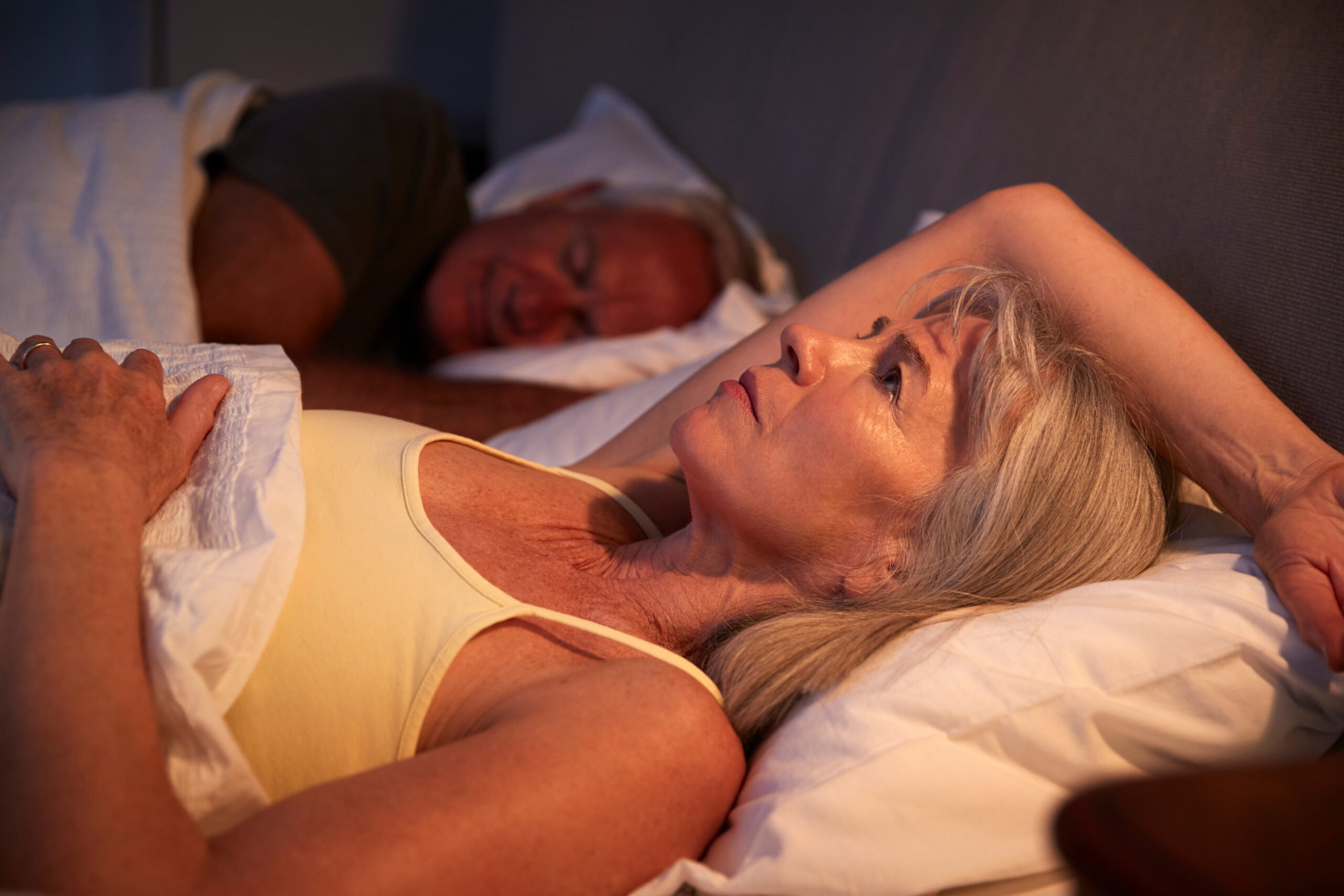Difficulty falling asleep or staying asleep will affect up to two thirds of adults at some point in their lives. Insomnia is characterised by trouble falling asleep, staying asleep or having prolonged periods of wakefulness during the sleep period. It can lead to problems in daily functioning and can be a debilitating problem for some. It is a common problem we treat at Sloane Street Surgery, and it is of vital importance to speak to your GP early about it to tackle any sleep issues.
What are the common symptoms of insomnia?
The most common symptoms are difficulty falling asleep and waking in the night. Other symptoms include unwanted early morning wakening, daytime fatigue, poor attention span, mood changes and having worried thoughts about sleeping.
Insomnia can be short term, lasting only days or weeks or can be longer term. Short term insomnia is often triggered by common life circumstances such as work stress or relationship issues and so almost everyone will experience some difficulty falling asleep at a point in their lives. This short-term insomnia may resolve when the trigger subsides and with time. If, however, it lasts longer than 3 months, it is called chronic insomnia. It is important to talk to us as soon as you notice troubles with your sleep as early support can make a difference.
What causes insomnia?
Many factors can contribute to sleeping difficulties. Some common contributors include stress, caffeine, alcohol and mental health disorders such as anxiety or depression. It has also been shown that certain people are more likely to experience insomnia – being female, having an immediate relative with insomnia, being over the age of 60 and people with medical conditions such as diabetes or chronic pain.
What can doctors do to help?
Our first step is to help with any factors that may be contributing to troubled sleeping. This will include looking at physical health problems, medications that you may be on and lifestyle factors.
Physical health
There are some health conditions such as bladder instability, prostate problems, menopause and chronic pain that can contribute to disruptive sleep. At your appointment we can address these underlying causes to result in a better night’s sleep.
We would often want to perform blood tests and check thyroid function and calcium levels that could be a contributor to poor sleep.
Several studies have shown long term insomnia can increase the risk of high blood pressure and cardiovascular disease. We therefore would want to perform a cardiovascular exam and check your heart health.
Lifestyle and Sleep Hygiene
Lifestyle factors are a major contributor to our sleep patterns.
Sleep therapists suggest no caffeine after midday. Nicotine, alcohol and large meals should be avoided within 2 hours of bedtime. The sleep environment should be the right temperature, quiet and not too bright. It is advised to avoid checking the clock and not using electronic devices for an hour before bed.
A regular sleep schedule can help by getting out of bed at the same time each day, avoid napping in the day and not going to bed before you are sleepy. Exposure to bright light in the morning is thought to help with circadian rhythm.
What is CBTi and how can talking therapy help with sleep?
The next step we will likely discuss with you is cognitive behavioural therapy for insomnia (CBTi).
CBTi aims to change the way we think about sleep and then help us to create a new sleep habit that gives us enough sleep each night to not feel sleepy during the day. The cognitive part of CBTi addresses any negative thoughts regarding sleep and tries to address any worry associated with sleep. A sleep therapist will use sleep indexes and sleep diaries to assess what type of insomnia you are suffering from and why. The behavioural part helps to form new sleep habits.
At Sloane Street Surgery we work with respiratory consultants, psychiatrists and psychologists who deliver their own CBTi. There is a significant amount of research and large trials that show CBTi to be effective and can offer a lasting solution for 50-70% of patients with insomnia. It is thought to be as effective or more effective than sleeping medications which can often have side effects.
CBTi can also be done digitally and there are several apps available.
Should I take sleeping tablets?
There are many sleeping medications available. The first option that many try are antihistamines which cause drowsiness. These have the benefit of not having severe side effects and do not cause dependency.
Melatonin is a medication we prescribe to help boost our own natural levels of the hormone. It has been shown to help people fall asleep quicker and may have the most benefit in those people who fall asleep very late and wake up late the next day. It is not suitable for everyone so important to discuss whether this is an option for you.
There is a group of drugs called benzodiazepines which can be used for sleep. They are very effective and can be useful for short term insomnia, in addition to addressing the factors that may be contributing to a poor sleep pattern. However, they have addictive properties and hence we prefer not to prescribe them for long periods of time; we try to only prescribe them for 3-7 days. We would look at each patient’s case on an individual basis and discuss the risks and benefits of these medications.
There is a relatively new medication available called Daridorexant which has been shown not to be addictive. It reduces wakefulness and hyperarousal which for some patients is helpful. This may be suitable for some patients who have tried CBTi, and found it has not been helpful and they still have difficulty with day time functioning.
Sleep is of great importance for our physical and mental wellbeing. If you have any questions or concerns about your sleep, please do talk to us and we can explore the options. Each person’s treatment should be tailored to their specific needs as everyone’s sleep journey is personal and unique.
To book an appointment online click here or call us on 0207 245 3999.
Article produced by Sloane Street Surgery, a private GP practice in London that provides world-class private healthcare for patients in Chelsea, Knightsbridge, Belgravia, West London, Hampshire, and beyond.
About the author

MBBS MRCGP DFSRH
“Because our patient appointments are long – we can really get to the root of the problem and address the patient’s worries holistically”.
My training included acute General Medicine, Emergency Medicine, Care of the Elderly and Obstetrics & Gynaecology, but I have a specialist interest in Women’s Health, namely Menopause, and am a diplomate of the Faculty of Sexual & Reproductive Healthcare of the Royal College of Obstetricians & Gynaecologists.
Only recently has Menopause been recognised as the major milestone it is and I’m proud that we can support women who suffer multiple symptoms with the many treatment options available.



